This is a free issue of our magazine.
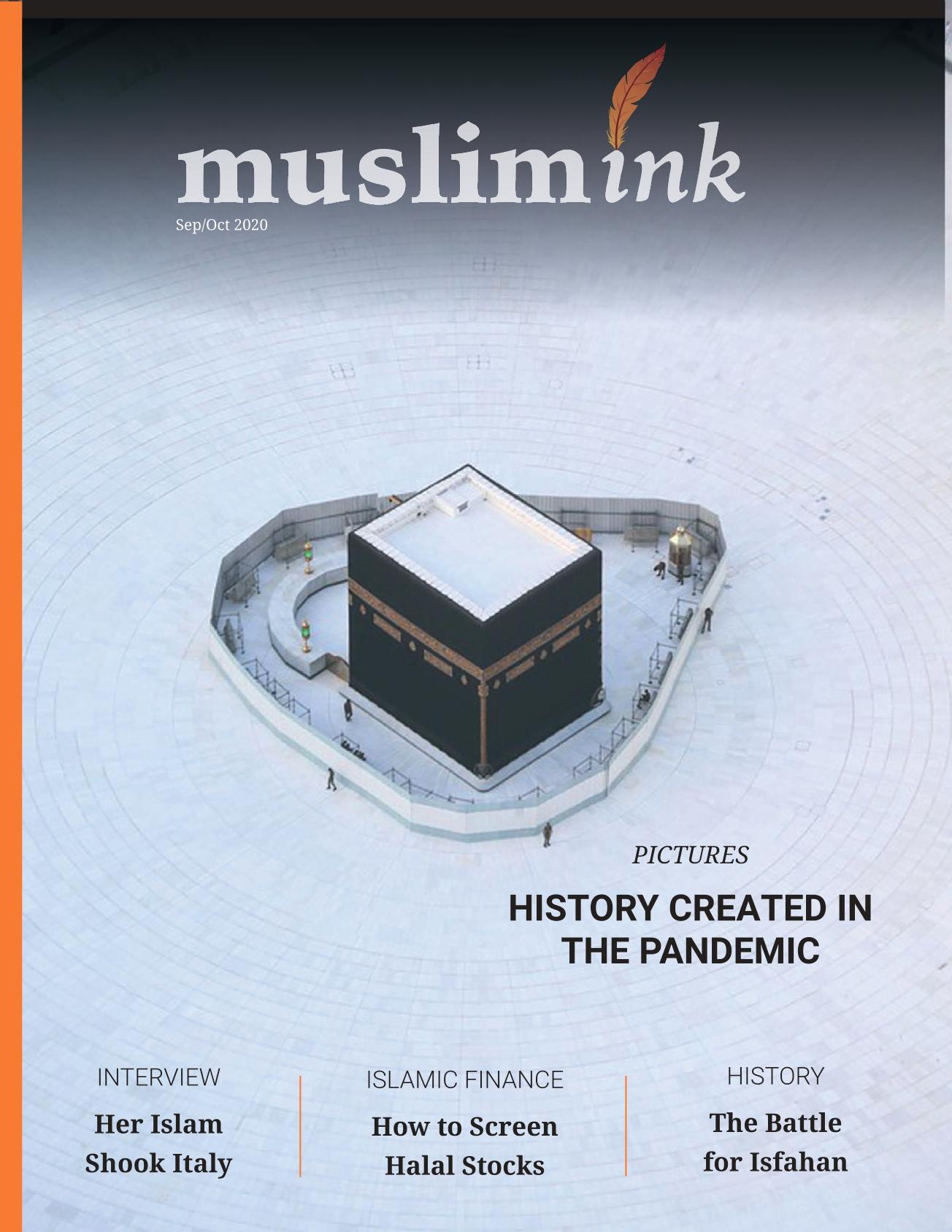
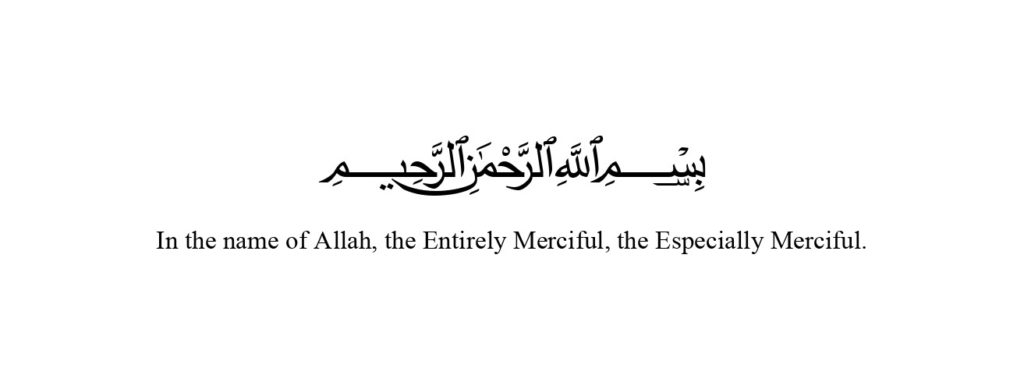
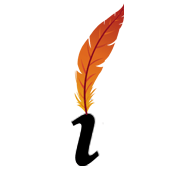
Subscribe to Our Mission
Dear Readers,
We are an Ummah of ‘Iqra’ (Read). At Muslim Ink, we are driven by a passion to revive our Ummah’s rich legacy of learning and driving positive change in the world.
We are on a mission to produce the best possible publications for Muslims In sha Allah. Our content will be firmly and uncompromisingly rooted in and shaped by what Allah and His Messenger ﷺ have said.
By subscribing to Muslim Ink, you will not only be reading excellent content In sha Allah, but also supporting our mission as we work on many more beneficial products and services.
Learn more about our print and digital subscriptions:
- Subscribe to Our Mission
- Her Islam Shook Italy
- In Bangladesh, homeowners sell surplus solar electricity
- Are we complaining about 2020?
- FIQH: Keeping ties with female relatives
- TAFSEER: ‘And fitnah is worse than killing’
- From Hinduism to Islamic scholar: Shaikh Ziya’s great work in Hadith
- ARABIC GEM: ‘My Lord, enable me’
- Can we name ourselves after Allah’s Names?
- How Islamic scholars referenced other works
- BATTLE FOR ISFAHAN
- Our amazing blood vessels are 160,000 kms long
- 10 Amazing Facts About Newborns
- How to nourish your hair under hijab
- PALESTINIAN SALAD: Watermelon, Feta and Red Onion with Mint
- How to Check If A Stock Is Halal
- IN PICTURES: History Created in the Pandemic
INTERVIEW WITH SILVIA
Her Islam Shook Italy
Silvia Romano, an Italian aid worker was kidnapped in November 2018 by gunmen linked to the Somali armed group al-Shabab in northeast Kenya. At the time of the attack, Romano was volunteering for an Italian NGO in an orphanage.
Finally, word surfaced in May that she had been released after 18 months in captivity. Italians were overjoyed after weeks of gloomy coronavirus-driven news. The joy, however, was short lived.
When she stepped off the Italian government plane wearing a full green hijab, her welcome not only turned ugly, but also dangerously hostile.
The conversion of Silvia to Islam opened the door of insults on social media. She has also been met with threats. Right wing media and politicians left no stone unturned in criticizing and spewing hate against Silvia.
Not all took part in the mudslinging however. Many, including liberals and the left-wing, condemned the hate and celebrated her return home. The Vatican newspaper L’Osservatore Romano urged Italians to be more compassionate. Commenting on her release after 535 days in captivity, the paper said that instead of joy, her release produced “a tribunal of thousands of judges, almost all operating on social media, issuing sentences,” which it called a “list of horrors.”
Muslims in Italy Welcome Her
Aisha (Silvia) received overwhelming messages of support from her new Muslim brethren in Italy. Initially she had thought she may have to spend Ramadan alone. However, she received gifts and uncountable letters. La Luce published a video of Muslims from around the country welcoming her with a heartwarming message.
She did not speak to any media organization during the chaos. However, she later gave an interview to La Luce on what led her to embrace Islam.
INTERVIEW EXCERPTS
What was your take on religion before the kidnapping?
Before the kidnapping, I was completely indifferent to God; I could call myself a non-believer. Some times, when I heard about one of the countless tragedies that hit the world, I said to my mother, “If there was a God, this evil wouldn’t exist. I think God does not exist. Otherwise, He wouldn’t allow all this grief.” However, I only rarely thought of these issues. Most of the time, I was indifferent. I lived my life following my desires, my dreams, and my pleasures.
You grew up in a multi-ethnic neighborhood. How was your family’s stance on this situation?
My parents have always been open-minded, tolerant; they never discriminated. I had friends from different backgrounds. My parents taught me to appreciate differences. I also traveled a lot with my mom. Every summer, we visited a different country: Morocco, Dominican Republic, Egypt, Cape Verde, just to name a few.
Did you have a chance to interact with Muslims when growing up?
Yes, but unfortunately my idea of Islam was not very different from the one people have when they know nothing about it. When I saw a veiled woman in Via Padova, I had the common prejudice of thinking that she was oppressed. The veil represented women’s oppression to me.
Were there Muslims in Chakama, the Kenyan village where you volunteered?
Yes, there was a mosque and there were Muslims. A close friend of mine was Muslim, but that did not encourage me to get closer to religion. I saw him wearing a tunic on Friday, and I knew people were going to the mosque, but that was pretty much it. I also saw little girls wearing veils on Friday, but I was not particularly interested on the topic.
When did you start approaching God?
When I was kidnapped, at the beginning of our walk, I started to think, “I came to volunteer, I was doing something good, why is this happening to me? What did I do wrong? Is it a coincidence that it was I who was taken? Why not another girl? Did someone decide it?” I believe that these first questions unconsciously brought me closer to God. Then, my spiritual journey started. During that journey, the more I wondered whether it was chance or fate, the more I struggled. I did not have answers, but I needed to find them. […] I understood that there was something powerful that I could not identify yet. I understood that there was a plan designed by someone up there… (In prison), I started to think, “Maybe God is punishing me. He is punishing me for my sins, because I did not believe in Him, because I was too far from Him.” I reached another milestone the following January. I was in prison in Somalia; It was night and I was sleeping, when I heard for the first time a drone air strike. I was in shock. I felt I was going to die. Then, I started praying to God, asking Him to save me because I wanted to see my family again. I was asking Him for another chance, I was afraid of dying. That was the first time I turned to Him.

On how she embraced the faith of her kidnappers.
I read the Qur’an and I found no contradictions in it; I immediately understood that it guides you towards a greater good. The Qur’an is not Al Shabaab’s word. I felt it was a miracle. My spiritual search kept going and I became increasingly aware of the existence of God. At some point, I started to think that, through this experience, God was showing me a life path that I was free to follow, or not.
What was your relationship with the Qur’an?
The first time, it took me two months to read the Qu’ran, while the second time I took my time to reflect more deeply on what I was reading. Every day, I felt a stronger need to read it, until I embraced Islam. Many verses really hit my heart; it was as if God was talking directly to me. I also read some verses from the Bible and learned the common points between Christianity and Islam. Ultimately, the Qu’ran seemed to me a sacred text with clear principles that could guide me towards God.
Any surahs you are fond of?
Before I became Muslim, I learned verse #70 from the Surah Al-Anfal: “O Prophet, tell the prisoners in your hands, if Allah is aware of any good in your hearts, He shall grant you better than that which was taken from you, and will forgive you- Allah is the Most Forgiving, Most Merciful.” I also learned the first Surah of the Qu’ran, Al-Fatihah, and started to pray even if I did not know how to do it properly. Another verse that greatly struck me was: “How can you be ungrateful to Allah when you were dead and He gave you life? Then He will make you die and bring you back to life and then you will be led back to Him.” (Qur’an, 2:28) And also, “If Allah helps you, then none can overcome you, and if He leaves you without assistance, then who is there to help you? Only in Allah should the believers trust.” (Qu’ran, 3:160) It seemed like these verses talked directly to me.
How faith strengthened her
Faith comes in different stages and mine developed over time. When I became a Muslim, I looked at my destiny with more serenity. I was sure that God loved me and He would have guided me towards what was good for me. When I was scared and when I was anxious about my family and my future, I found strength in prayer. The more my faith grew, the more I asked God for strength and patience, especially when I was sad. Before accepting Islam, at some point, I already thought that Islam was the right path to follow. At a particular moment, I even thought that I was ready to accept it, but I feared how people would react. I often prayed to God to strengthen my faith and to prepare me for what was coming.
Did you expect the hostility you are now facing?
Yes, of course. I developed this awareness by studying the life of Prophet Muhammad ﷺ and his companions; it helped me to get an idea. Muslims have always been persecuted.
Why so, in your opinion?
Because Islam goes against a system based on injustice, the power of money, corruption, and falsehood. Such a system can perceive Islam as a threat.

Many people think that, for women, freedom means being able to show your body, to dress how you want to dress—although you must always dress how they want you to dress
People don’t seem to understand how you chose a religion that takes away your freedom?
The concept of freedom is subjective and, therefore, relative. Many people think that, for women, freedom means being able to show your body, to dress how you want to dress—although you must always dress how they want you to dress. Before, I thought I was free, but I was actually subjected to constant judgment. It became clear when I showed up dressed differently and people started to attack me. There is something deeply wrong in this society if freedom only means to be able to discover your body. For me the veil is a symbol of freedom. I feel inside that God asks me to wear it to elevate my dignity and my honor; I know that by covering my body, people will first see my soul. Freedom to me means not being sexually objectified.
Do you feel less free to move, work, and meet people now?
When I am outside, I feel people’s glances on me. I do not know whether they recognize me or it is because of the veil. I think people are surprised to see how I dress, being Italian. But it doesn’t particularly bother me. I feel free and protected by God.
How did you choose your name?
One night, I dreamt that I was in Italy. I was taking the subway and my name on the metro card was Aisha.
Do you feel you are a better person today?
I am much more patient, much more respectful towards my parents—this was not always the case, more generous, and much more compassionate. When someone wrongs me, even if they offend me, I do not feel any resentment or anger. I do not feel like replying with some offense, but instead I try to understand that person. I think that he acts that way because he suffers. If I can, I must help him.
What expectations did you have of the Italian Muslim community?
I could not wait to know Muslims, but I thought it would be difficult. My plan was to enter some shops or Halal meat shops and say, “Assalamu aleikum.” I did not imagine people would recognize me as much as they do. I thought I would spend Ramadan alone. Instead, I received gifts, uncountable letters, and the video La Luce published with the support of many Muslims from all over Italy. I was amazed and profoundly grateful.
What surprised you most about the community?
First of all, I did not expect there were so many (native) Italian Muslims. I thought I would mainly meet Egyptians, Moroccans, and African Muslims. Instead, I first met (native) Italian Muslims, and it was a great surprise. I was struck by the solidarity of the community, not only in Milan, but also everywhere else. It feels like a second family to me.
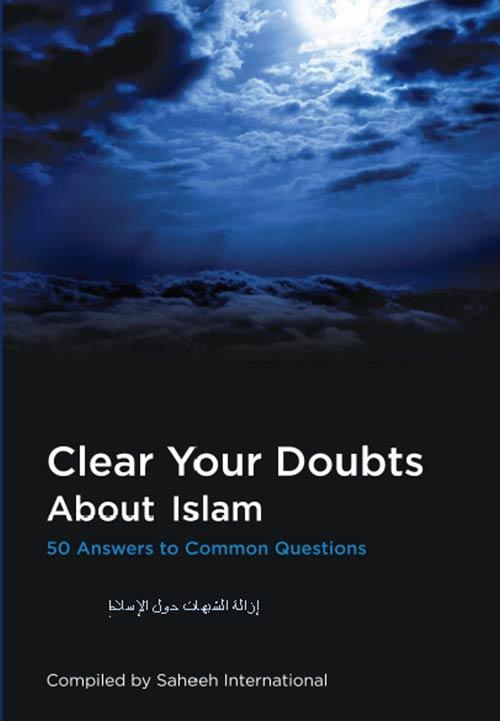
CLEAR YOUR DOUBTS ABOUT ISLAM
By Umm Muhammad
This book provides concise yet comprehensive answers to questions most often raised about Islam and corrects much of the misinformation currently being spread in a clear, logical manner.
In Bangladesh, homeowners sell surplus solar electricity
Bangladesh is one of the world’s leaders in solar home systems for off-grid communities, with more than 5 million of the systems now in place. But that’s not all. In Bangladesh, owners of home solar powered systems earn money by trading their surplus electricity earning a much-needed extra income during the pandemic.
SOLshare, a company that helps owners trade their surplus electricity, recently won an international award for climate change innovation. “We have created a device that can share the surplus energy and help people earn money for it,” said Salma Islam, a project manager at SOLshare, based in Dhaka, according to a report in Reuters.
Using an electronic unit installed alongside their solar system, owners can transfer excess energy into a local power “microgrid” created with other SOLshare users, allowing those who need more power to buy it. “If someone puts the device on automode it will automatically start selling energy once its (battery is) full,” Islam said.
SOLshare officials said they have set up 27 “microgrids” in communities that have installed their devices across Bangladesh. A majority of their roughly 3,000 customers – most of them farmers – earn less than $5 a day, they said. The company is also in talks with the United Nation’s refugee agency to create similar microgrids in the world’s largest refugee settlement in Cox’s Bazar, home to more than 800,000 ethnic Rohingya refugees who fled persecution in Myanmar.
SOLshare officials said they hope to scale up their business to allow at least 100,000 Bangladeshis to share solar power over the next five years. One of those who has benefited from the technology is Bimal Krishna Das, 40, who said his pharmacy business in Barisal, about 250 kms from Dhaka, had taken a hit from the coronavirus pandemic. By selling electricity, he said, he was able to raise extra funds he desperately needed. “It’s such a relief to have some extra money in your pocket during this crisis,” he said.
Are we complaining about 2020?
By Rasheed ibn Estes Barbee
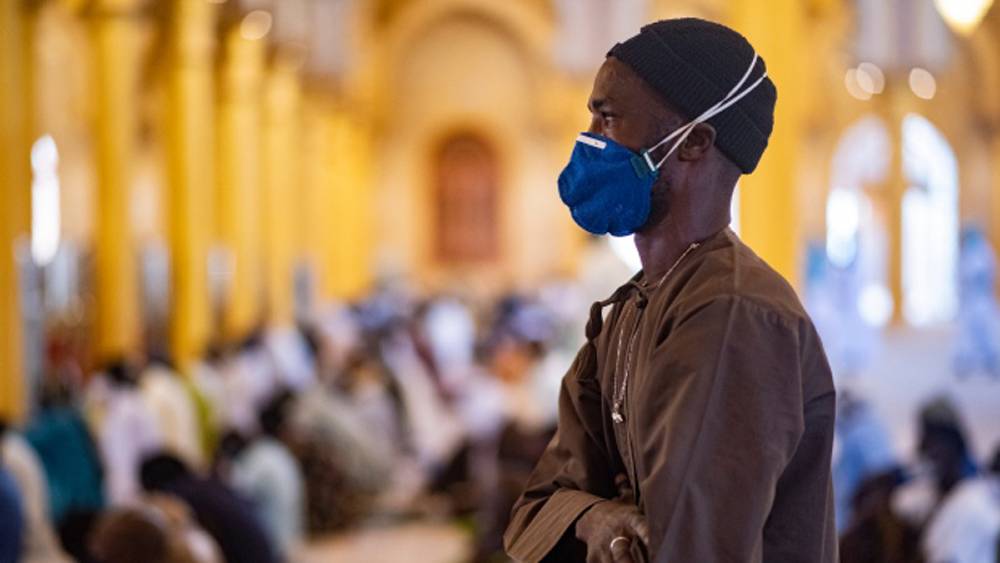
MANY of those who don’t understand the wisdom of their Lord are describing 2020 as a horrible year. You find their days of relief resembling their days of distress.
As the noble companion Salman al-Faarisi said: “Allah will afflict an evil person with a calamity, and then He will grant him relief. But he will be similar to the camel that was confined by its owner. The camel doesn’t know why its owner confined him. Then its owner releases him, and the camel doesn’t know why its owner released him.” (Collected by ibn Abi Shayba, 10918)
The believer understands that trials are a purification and mercy for the believers. In his explanation of Sahih Al-Bukhari, Shaikh Ibn Uthaymeen described the believers’ attitude during a plague that hit Saudi Arabia a century ago. He said:
“In this land, there was a great epidemic. Our Shaikh, the Imam of our Masjid, informed us that for one daily prayer there would be 7 or 8 funeral prayers. The common people called this ‘the year of mercy’; meaning they were optimistic that Allah was bestowing mercy upon this Ummah by way of this plague.
“This is despite the fact that sometimes this plague would enter a home and only one person in the home would survive. Subhan Allah! This occurred in several homes. And sometimes the entire household would die.”
Describing a year as ‘difficult’ or ‘severe’ without expressing discontent is allowed. Shaikh Ibn Uthaymeen said: “It is permissible to describe a day as difficult if the intent is purely information and not to complain. An example is the statement of (Prophet) Lut peace be upon him: ‘This is a distressful day.’ (Surah Hud, 11:77; Collection of Fatawa 10/823)
FIQH: Keeping ties with female relatives
Q: What is the method for visiting the female paternal and maternal cousins, seeing that they are from the relatives?
Shaikh Abdulaziz Ibn Baz: It is prescribed to visit the relatives especially the Mahram relatives such as the maternal and paternal uncles, and the maternal and paternal aunts according to the order of their close relationship to you. This is achieved by writing them, or calling them on the phone; all of this is good. The important matter is to maintain a close relationship with them and to not sever the ties of kinship; rather maintain a good relationship with good words, visiting them or calling them on the phone.
If the visitation is between those who are not Mahram relatives; there is no problem with this provided they are not secluded alone, and there is not Fitna. There is no problem if you visit her in the company of her husband, her brother, or her father. A visit of love and kinship; you give them the greeting of Salaam and ask how they are doing. There is nothing wrong with a visit that does not contain an accusation of evil, there is nothing impermissible present, and there is no seclusion, no uncovering and no revealing of her beauty.
(Translated by Rasheed ibn Estes Barbee)

TAFSEER:
‘And fitnah is worse than killing’
(Qur’an, 2:191)
WE learn from this ayah that al-fitnah — i.e. preventing the people from following their deen (Islam) — is a greater (crime) than killing them; because in their killing, the maximum they will miss out on is this worldly life. But if they are prevented from (learning and having) Emaan, then they will lose in this world and the Hereafter.
Many people approach the places of fitnah (e.g. a bad company or an environment that would corrupt their religious beliefs and morals) thinking this fitnah will not affect (or harm) them. But if they continue doing so, it won’t be long before they are overtaken by the fitnah. This is why the Prophet ﷺ said, “Let him who hears of the Dajjaal (Antichrist) go far from him for I swear by Allah that a man will come to him thinking that he (the Dajjaal) is a believer, then he will follow him because of the deceptive arguments he (the Dajjaal) will put forward (to confuse him).” (Sunan Abu Dawood, 4319; graded Saheeh by Shaikh al-Albani)
The important thing is that a person should not expose himself to fitnah. How many people approached the places of fitan thinking they were immune, but they were not!
[Source: Tafseer of Surah al-Baqarah by Shaikh Ibn al-`Uthaymeen (3/59-60); translated by Abu Sahl Fahad Barmem, ilm4all]
DEATH OF A SCHOLAR
From Hinduism to Islamic scholar: Shaikh Ziya’s great work in Hadith
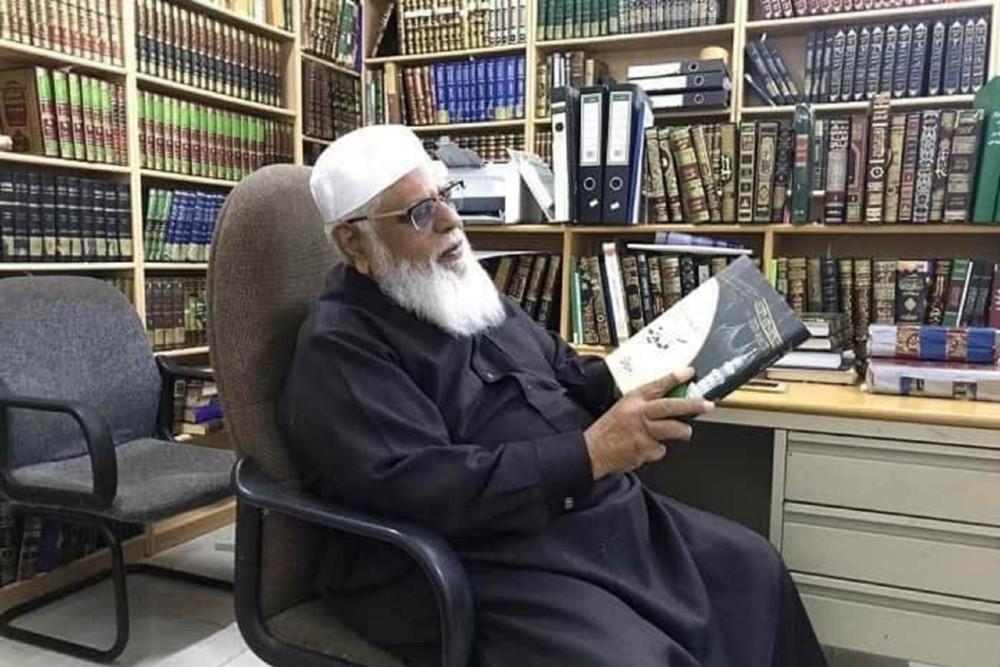
SHAIKH Muhammad Ziya al-Rahman al-A’zami, an outstanding Hadith scholar, passed away in Al-Madinah on July 31, the Day of Arafah, at the age of 77 and was buried in Al-Baqi.
The shaikh has an inspiring story of embracing Islam and making remarkable contribution to Islamic sciences. Born as a Brahmin in northern India, he belonged to the upper caste of Hindu society. He came across a book about Islam and read a verse that struck him: “Indeed, the religion in the sight of Allah is Islam.” (Qur’an, 3:19) The verse challenged him to research. He tried to learn as much as he could in order to refute Islam.
However, the more he learned about Hinduism from its scholars, the more he grew distant from it, and the more he learned about Islam, the more he was drawn towards it. Until he knew Islam was the truth and that Hinduism was no more than a bunch of myths.
The shaikh eventually embraced Islam when he was 16 and this caused an uproar in his town. He escaped for his life and moved from one town to another for refuge. Not finding much success, he moved to southern India, which was (and still is) more tolerant.
❝
He referred to every single book of hadith written since the 5th century Hijri
He joined Jamia Darussalam, a madrasah in Oomerabad to learn Arabic and Islamic sciences. After finishing his education in Jamia Darussalam, he went to Madinah in 1966 to pursue further Islamic knowledge. He completed his Bachelors in Shari’ah and went to Umm al-Qura University for Masters in Hadith. He then went on to do his PhD. Although he had several work opportunities, he chose academics as he had a passion for learning and teaching.
After his PhD, he held a managerial role at Muslim World League for some time. He then quit and joined the Islamic University of Madinah due to his passion for staying connected with Islamic knowledge.
Collecting All Sahih Ahadith
After retiring from teaching and as dean of the College of Hadith, Shaikh al-A’zami took on a monumental task to collect all authentic ahadeeth in one book. The result was an encyclopedia titled al-Jami al-Kamil fi al-Hadith al-Sahih al-Shamil (18 volumes in the shaikh’s revised edition), which includes 16,800 narrations. He referred to every single book of hadith ever written since the 5th century Hijri to sift through and compile all authentic narrations.
It took him 15 years to complete this work. He also has several other reputable contributions such as his defense of Abu Hurairah against orientalists’ accusations in his Masters’ thesis, which was quoted and referred to by several scholars. May Allah have mercy on him and grant him jannah al-firdaws without account. Aameen.
ARABIC GEM: ‘My Lord, enable me’
رَبِّ أَوْزِعْنِىٓ أَنْ أَشْكُرَ نِعْمَتَكَ
“My Lord, enable me to be grateful for Your favor…” (Qur’an, 46:15)
In a beautiful ayah that talks about good treatment to parents, the Qur’an also mentions a striking du’aa, a portion of which is quoted above.
The Arabic goes, “Rabbi auzi’ni an ashkura ni’mathak.” The translation of auzi’ni is “enable me.” However, if we go into the literal meaning of the word, it is, “gather within me the utmost strength and ability” to be thankful or grateful for Your favors and blessings. The depth of the meaning can perhaps be best appreciated if we learn and understand Arabic. May Allah facilitate it for all of us. Aameen.
Can we name ourselves after Allah’s Names?
Yes, we can if the name is not an exclusive for Allah. Many Muslims are unaware that, when it comes to Allah’s Names, there is a distinction between names that are exclusive and those that aren’t.
Shaikh Abdulaziz Ibn Baz, the late Islamic scholar, explained saying:
“Allah’s Names are not forbidden for people to use except if the names are exclusive to Him. (For example), Al-Khallaaq (the Ever-Creating), Ar-Razzaaq (the Ever-Providing), Maalik al-Mulk (Owner of the Dominion), Ar-Rahmaan (the Most Gracious), etc.
“As for names not exclusive to Allah, then a person may take one that suits him. A person can be called Haleem, Ra’oof (kind), or Raheem (merciful) as Allah described His Prophet, Muhammad ﷺ as: ‘With the believers, he is (ra’oof) kind and (raheem) merciful.’” (Qur’an, 9:128)
[Paraphrased from his fatwa on Nur alad-Darb program.]
How Islamic scholars referenced other works
IN any modern academic paper, you have certain rules of citation. You have to mention the book, the author, the volume number, the page number, the print, and so forth. You have different styles and standards.
Our scholars used to have a very precise way of referencing, without mentioning print, volume number, or page number. For example, if an author wants to reference the Maliki madhhab, they will say: See Al-Hattab where Khaleel says, such and such.
The Malikis memorize Khaleel (a fiqh book) and they can easily find his statement and the statement of any of its commentators. If you give them a few words of Khaleel, then they have access to dozens of its commentators. If you give them the name of the commentator, they know exactly where to look. (Mukhtasar Khaleel is the most famous abridged text for the later Malikis.)
Some commentators of Khaleel, for example, will refer to each other with abbreviations. Ad-Dusuqi for example refers to Al-Bannani by writing بن which stands for البناني.
So, if you are reading something in Ad-Dusuqi, and he quotes or mentions something and writes at the end بن that means just go to Haashiyat Al-Bannani in that same location where they are discussing Khaleel’s statement, such and such, and you will find what’s being quoted.
So they never needed a bibliography, or works cited. They never needed print, volume number or page number. They had an amazing method, and it worked. They continue using this system until today. The same goes for all schools and all sciences. They have a very unique and accurate method of referencing. In tafsir, all you have to do is quote part of an ayah and the name of the mufassir, and that’s it.
Source: Shaikh Ahmad ibn Samih Abdelwahab
BATTLE FOR ISFAHAN
The victory that led to the full conquest of Persia
The Muslim conquest of Persia happened over several years. In this short summary from Imam Al-Tabari’s Tarikh (History), we look at a critical victory that eventually led to the fall of the Sassanid empire of Persia.
IN 21H (641CE), ‘Umar ibn al-Khattab gave the armies of Iraq the command to seek out those of Persia, wherever they might be. Yazdajird (Yazdegerd III, the last Persian king) was waging war on Muslims every year (to avenge past failures). It was recommended to ‘Umar that unless Yazdajird was driven out of his kingdom he would continue to attack. So, ‘Umar gave the army the green signal to penetrate into Persia. He dispatched the commanders of the Basran and Kufan armies after the victory of Nihawand.
‘Umar b. al-Khattab consulted with al-Hurmuzan (a Persian general who converted to Islam) on whether the conquest should begin with Fars, Azerbaijan, or Isfahan. He replied: “Fars and Azerbaijan are the wings; Isfahan is the head. If you cut off one of the wings, the other one [can still] work. But, if you cut off the head, the wings collapse. Begin with the head!”
[Editor’s note: The decision was regarding which province to start with: Fars in the south, Azerbijan in the north or Isfahan in the center (see map below). Isfahan was the heart of the Persian empire and a channel for supply and communication. Once Isfahan was conquered, Khoarasan — the stronghold of the Persian empire — would be isolated from its Fars and Azerbaijan provinces. After the fall of Fars and Azerbaijan, Khorasan would become the last bastion of the empire leading for the full conquest.]
❝
The ruler wanted to show his royal splendor. He sat on his throne with the crown on his head…
‘Umar went into the mosque while al-Nu’man b. Muqarrin, a companion of the Prophet ﷺ, was praying and sat down beside him. When al-Nu’man finished his prayers, ‘Umar told him that he had a job for him to do. Al-Nu’man replied that, if it was collecting taxes, he was unwilling, but, if it was a military task, he was willing. ‘Umar despatched him to Isfahan and wrote to the people of al-Kufah to give him reinforcements.
[Editor’s note: Al-Nu’man was the chief of his tribe Muzaynah who lived in the outskirts of Madinah on the route to Makkah. When the Prophet ﷺ migrated to Madinah, he decided to embrace Islam and influenced his family and tribe to do as well. He, with his ten brothers, and 400 horsemen of Muzaynah went to Madinah and embraced Islam. The event lit Madinah up with excitement and joy.]
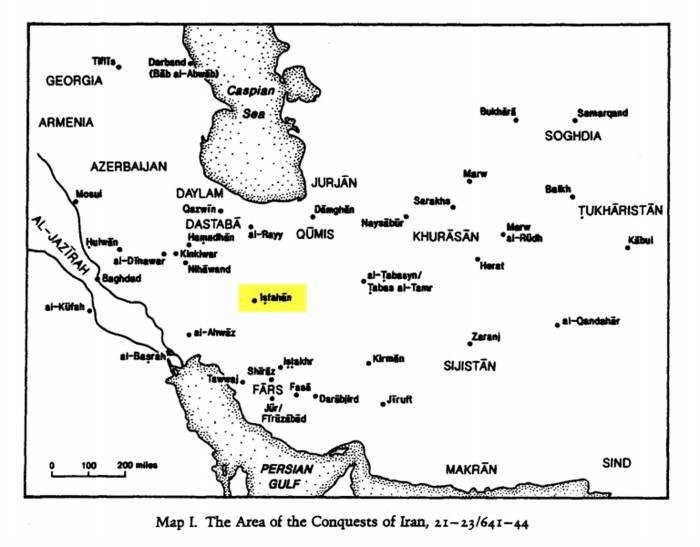
Al-Nu’man arrived in Isfahan, but there was the river between him and the enemy. So al-Nu’man sent al-Mughirah b. Shu’bah to them. Isfahan’s ruler, called Dhu al-Hajibayn, was told that the envoy of the Arabs was at the door.
The ruler wanted to show his royal splendor. He sat on his throne with the crown on his head and royal princes sat in two ranks wearing earrings, gold bracelets and silk-brocade garments. Al-Mughirah entered with his lance and shield and walked up to them while poking their carpets with his lance to demoralize their spirits. Two men took him by the arms, and he stood before their ruler, who spoke to him, saying: “You Arabs, vehement hunger has afflicted you, so you have left [your homelands]. If you wish, we shall give you provisions, and you can return home.”
Al-Mughirah, after praising Allah, said, “We Arabs used to eat corpses and carrion; people used to trample us under foot. Allah sent forth from us a prophet, the best of us in rank, the most truthful in what he says.”
Al-Mughirah went on to praise the Prophet ﷺ and mentioned the prophecy that Muslims would conquer Persia. When the Persians were least expecting, al-Mughirah made a sudden leap and sat on the throne next to the ruler to further infuriate them. They seized him and started beating him. But he reminded them that he was an envoy. The agitated ruler said, “If you wish, you can cross over to us or we over to you (to fight). (Al-Mughirah) said that they would cross over to [the army of Isfahan). He continued: “So we crossed over against them. They formed themselves into chains of men, ten in one chain, or five, or three. We drew ourselves out in rank to meet them, and they shot arrows at us, finally rushing in among us.”
❝
O Allah! Give martyrdom this day to al-Nu’man in the aid of the Muslims!
[Editor’s note: It is important to mention here that al-Nu’man, during the first meeting with the Persian emperor Yazdajird about 6 years prior to this event, beautifully invited him to embrace Islam, else pay jizyah or fight. The haughty emperor was furious and went to war, which resulted in a resounding victory for Muslims, which is well-known in history as the Battle of Qadisiyyah.]
Al-Nu’man, at the head of the army, asked everyone to say Aameen for a du’aa he would make: “O Allah! Give martyrdom this day to al-Nu’man in the aid of the Muslims! Grant him victory over (the army of Isfahan).” He put on his coat of mail and launched the attack. He was the first man to be struck down.
The Muslims were victorious. The ruler of Isfahan, Dhu al-Hajibayn, fell from his mule and his belly split open. Ma’qil b. Yasar came to al-Nu’man when he was still alive and injured. He washed his face and gave him the good news of victory. Al-Nu’man said, “Alhamdulillah! Write to ‘Umar about this,” and then he passed away. The army included companions like Ibn ‘Umar and Ibn az-Zubayr, may Allah be pleased with them all.
FOR MUSLIM AUTHORS

Our amazing blood vessels are 160,000 kms long
DID you know that if you took all the blood vessels out of an average child and laid them out in one line, the line would stretch over 60,000 miles (100,000 kms)? An adult’s would be closer to 100,000 miles (160,000 kms) long. In contrast, the entire earth’s circumference is only about 40,075 km.
Can you imagine the 5-6 ft body of ours has so many “wires” connecting and keeping our body parts operating without getting entangled and perfectly fitted inside us? They also come in different sizes, ranging from a diameter of 25 millimeters to only 8 micrometers.
Subhan Allah, how amazing is Allah’s creation! One can only feel pity for the scientists who witness the perfect creation and still deny the Creator. No one would ever accept that a phone or a car, something far less marvelous, did not have a designer or manufacturer. Yet they deny the miraculous signs of creation all around us.
Our blood vessels are of three kinds: arteries, veins, and capillaries. Each plays a very specific role in the circulation process.
Arteries carry oxygenated blood away from the heart. They’re tough on the outside but they contain a smooth interior layer of epithelial cells that allows blood to flow easily. Arteries also contain a strong, muscular middle layer that helps pump blood through the body.
Capillaries connect the arteries to veins. The arteries deliver the oxygen-rich blood to the capillaries, where the actual exchange of oxygen and carbon dioxide occurs. The capillaries then deliver the waste-rich blood to the veins for transport back to the lungs and heart.
Veins carry the blood back to the heart. They’re similar to arteries but not as strong or as thick. Unlike arteries, veins contain valves that ensure blood flows in only one direction. (Arteries don’t require valves because pressure from the heart is so strong that blood is only able to flow in one direction.) Valves also help blood travel back to the heart against the force of gravity.
10 Amazing Facts About Newborns
By Aisha Al Hajjar
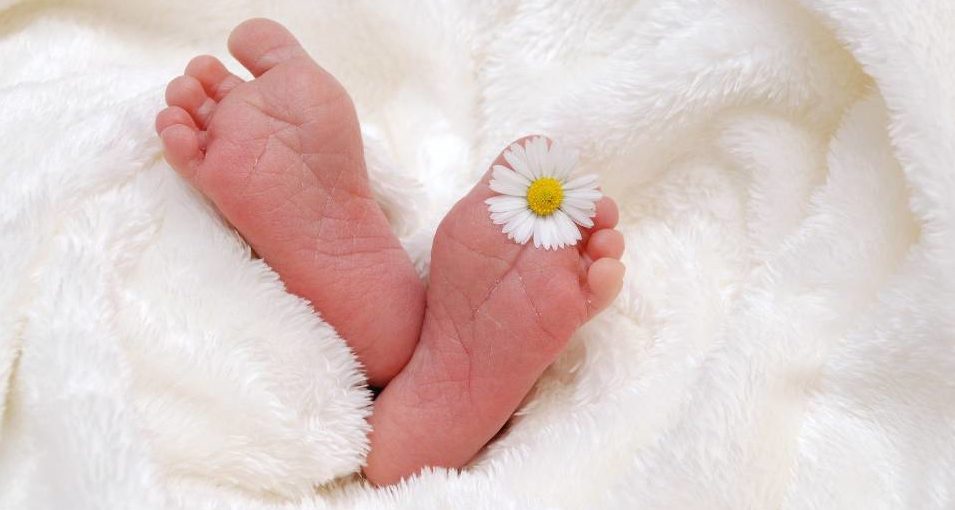
SUBHAN ALLAH, Allah in His infinite wisdom created all mankind in stages. It is amazing to gaze into the eyes of a newborn and know that he was created from mere drops of fluid. Even more amazing is before the child was born, his provision was promised and his fixed time in this world was set.
The Messenger of Allah ﷺ said:
“Verily the creation of each one of you is brought together in his mother’s belly for forty days in the form of seed, then he is a clot of blood for a like period, then a morsel of flesh for a like period, then there is sent to him the angel who blows the breath of life into him and who is commanded about four matters: to write down his means of livelihood, his life span, his actions, and whether happy or unhappy. By Allah, other than Whom there is no god, verily one of you behaves like the people of Paradise until there is but an arm’s length between him and it, and that which has been written over takes him and so he behaves like the people of Hell-fire and thus he enters it; and one of you behaves like the people of Hell-fire until there is but an arm’s length between him and it, and that which has been written over takes him and so he behaves like the people of Paradise and thus he enters it.” (Al-Bukhari and Muslim)
I remember people telling me, “Enjoy the newborn period; it passes so quickly.” With our babies changing so rapidly, we often forget or miss these little-known facts of infancy:
1. There is a “soft spot” in their skull that does not become solid until around two years of age. This allows their head to mold when passing through the birth canal, thus allowing them to be born.
2. They are able to hear in the womb and they can recognize their parent’s voices at birth. This is a good reminder to recite Qur’an for our babies in the womb as well.
3. The average length of the umbilical cord is about 50 cm. This is just long enough to nurse, even before the cord is cut. Delayed cord clamping and immediate nursing ensures early bonding and has health benefits for mother and baby.
4. When a newborn’s cheek is brushed, they turn towards the touch, open their mouths, and try to latch on and suck.
5. Babies’ first few bowel movements are a sticky, tar-like substance called meconium. If they are exclusively nursed, it changes to a thin consistency and is yellowish in color after a few days.
6. Newborn babies can see, however they may not track or follow an object for a few months.
7. Their vision is limited to 20-30 cm. Just far enough to see mother’s face while nursing in her arms. I love this as it is such a sign of the importance of nursing and Allah’s perfect plan.
8. Newborn babies don’t have tears. Sure they cry, but they emit no visible tears from their eyes until they are several months old.
9. A baby typically is born with dark or gray eyes. It’s not until a few months after birth that their true eye color can be determined (about the time their tears come in).
10. At first, babies cannot automatically coordinate breathing through their mouths. If their nose is stuffy or plugged they must cry in order to take in air.
It is a great blessing and responsibility to watch and guard our babies as they grow and pass through the many stages of this life. The creation and growth of our child is one of the many miracles from Allah (SWT). What an honor it is to be witnesses of this miracle from the start, alhamdulillah.
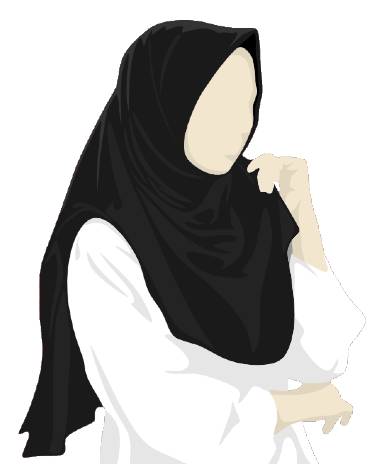
How to nourish your hair under hijab
Managing your hair while having to wear hijab for long periods of the day can be challenging, but not impossible. Here are some tips to nourish your hair and keep them healthy, nice and shiny.
1. Get A Good Hair Brush & Don’t Brush Wet Hair
Using the wrong hairbrush can cause hair loss at a faster rate. Find which type suits you best – the comb or the hairbrush – and whether your hair does better with medium or fine bristles. The right brush helps you avoid tugging on your hair while brushing. Don’t brush wet hair because the hair pores are bigger, making the hair weaker. Give your hair about two hours until it is 70 percent dry before brushing away.
2. Don’t Wear Hijab on Damp Hair
The first sign of dandruff is that you begin to scratch your head more often than usual. If you have the habit of putting on your underscarf and hijab when your hair is damp (or even worse, wet!), avoid or stop this altogether. Plan your hair care routine so that you can wash your hair on alternate nights. Not only will your hair have the time to naturally dry as you sleep, you’ll wake up with smooth and clean hair that will not disrupt your daily hijab routine.
3. How to Avoid Flat Hair
If you’ve been wearing hijab for a few years, notice how your hair tends to fall flat? The scarf exerts some pressure on your hair – the worst if you have thin hair. If you have long locks, try braiding your hair and putting it up into a bun using a scrunchie before putting on your under scarf. When it’s time to take off your hijab after a long day, the curls created by the braid will add volume to your hair. You could also blow dry fortnightly to add volume. And a quick way to get some volume at the front is to frequently change your hair parting.
4. Dealing With Dry Hair
Coarse hair definitely means your hair is dry. Instead of the silky shiny effect we all want, your hair looks dull and frizzy. Make a habit of spritzing some liquid moisturiser for dry hair on your locks and leaving for a few minutes. Then, tie your hair into a loose ponytail or bun, and put on your underscarf and hijab. The most important items to avoid: hairdryers and hair irons. Get your sister or friend to massage your hair with hair conditioners, dry shampoos, serums or oils monthly – don’t forget to take turns!
From Our Bookstore
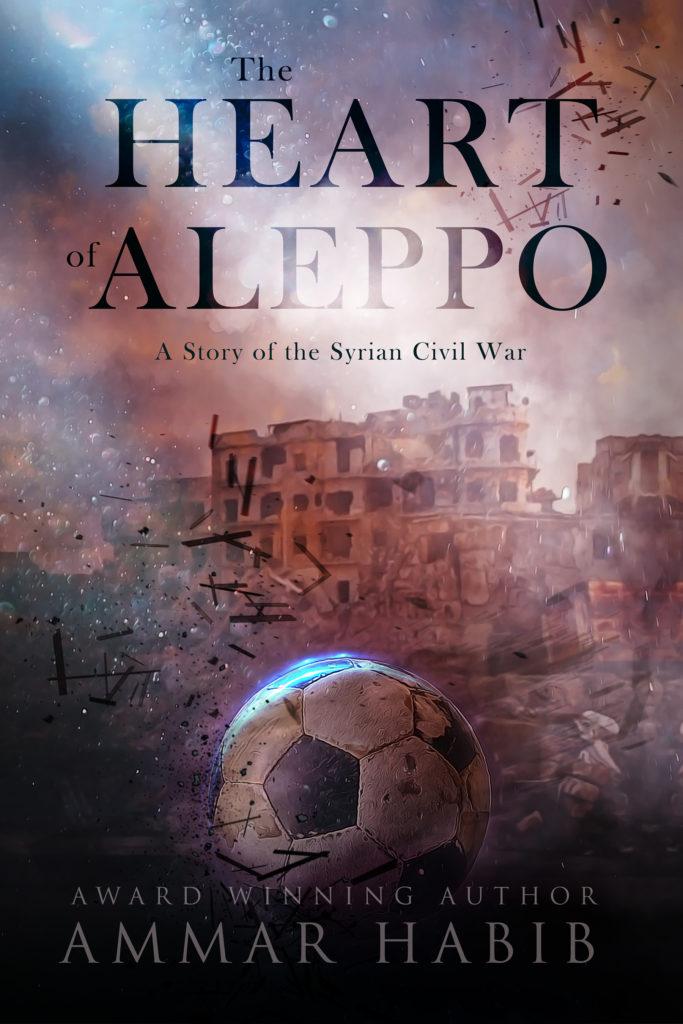
The Heart Of Aleppo: A Story Of The Syrian Civil War
By award-winning and best-selling author Ammar Habib
From the ashes of the Syrian Civil War comes this story of hope, love, and courage…

PALESTINIAN SALAD:
Watermelon, Feta and Red Onion with Mint
Palestinians love watermelon and cheese. This popular dish serves as a delicious dinner, which is usually eaten while sitting on the balcony or a veranda during summers. Yes, the place matters too! Some include onions while others don’t, but onions add a nice contrast to the sweetness of the watermelon and the creaminess of the cheese. (Serves 4)
Ingredients
- 1 small watermelon
- 250 grams of good-quality feta cheese
- ½ red onion, sliced into half-moons
- Handful of fresh mint leaves, chopped
- 1 tablespoon sugar (optional)
- Icing (optional)
- 1¼ cup (5 oz /150 g) confectioner’s sugar, sifted
- Juice of 1 lemon
While Palestinians use their traditional white cheese, the closest we can get is Feta cheese. You may also want to try an Arab store and see if they have the traditional one. But make sure the cheese you buy is not very salty. It just needs light, and just the right amount of, salt.
Cut the watermelon and feta cheese into cubes — the cheese cubes slightly smaller in size — and mix them together. Mix in the slices of red onion.
Sprinkle some sugar on the mint leaves if you wish and scatter them all over the salad. The combination is a delicious salad. Eat within an hour of serving else the salad will become mushy and lose its freshness.
LONG READ
How to Check If A Stock Is Halal
By Faraz Omar
MANY Muslims find investing in the stock market and understanding Islamic requirements complicated. Some have resorted to using automated halal stock screeners without understanding their filters and limitations. This article demystifies the subject of halal stock screening and empowers anyone with little-to-no knowledge of finance to be able to understand and screen companies for Shariah compliance.
I will cover the background of how the Shariah standards came about, explain how to screen for halal stocks, and finally touch on the effectiveness of automated Shariah screening that several apps and websites are offering In sha Allah.
Background: How Shariah standards were formed
Can investment in the stock market be halal? This is a question that perplexes many, and it’s a valid concern to be fair. The Shariah requires us to invest only in companies that are fully halal. The firm should have a halal business and operate in accordance with the Shariah. This means, among other things, that the company must not take interest-based loans to finance its operations.
When Islamic scholars first issued a fatwa regarding the stock market in the 1990s (IIFA-OIC1 & IFC-MWL2)3, they stipulated conditions that the company must be completely shariah compliant. They did not allow investment in companies that, for example, took debt on interest. However, in present times, most companies take on conventional debt. This is the reality of the financial system we are part of. Taking on an optimum level of debt is, in fact, actively recommended in corporate finance because interest payments lower corporate taxes.
The initial Islamic rulings made it quite difficult for Muslims to invest in publicly-traded companies. Scholars then, recognizing the hardship imposed, tolerated some non-Islamic aspects as long as the company’s core business was halal and the violations were small in percentage. The relaxations are of course based on Islamic law, which has allowances for times of absolute need and necessity.
Consequently, the scholars looked at several aspects of Shariah and derived a set of rules for Muslims to participate in today’s Capital Markets. This set of rules form the basis of all existing Shariah standards with regard to investing in the stock market. Various institutions offer and implement Shariah standards for Capital Markets. The most popular among them is the AAOIFI (Accounting and Auditing Organization for Islamic Financial Institutions). They all, for the most part, have the same criteria. The differences will be explained below.
On a side note, it’s important that Muslims work on bringing an alternative market that promotes and facilitates fully shariah-compliant businesses.
How to screen for halal stocks
The information you need to screen can be found in the company’s profile and financial statements. Almost all websites you use for researching a stock will provide you with this information. There are two screens to look at for filtering halal stocks.
1. Business Screen
The first filter to check for is if the core business itself is halal or haram. They can fall into three categories.
a. Haram Business
Companies operating in the alcohol, gambling, movies, music, financial services (banking, insurance, mortgage financing, etc.), pork-related products, pornography, television and tobacco industries will not pass this filter. No further analysis is required to label them as non-compliant. Islamicly website has a detailed breakdown on filtering by the industry companies operate in.
b. Mixed Revenues
Companies that have multiple streams of revenue need to be checked for the sources of their revenues. Firms that have mixed revenues, i.e. some halal and others not, will fall into this category.
i. Haram revenues
In this case, if the percentage of haram revenues is less than 5%, then the stock is Shariah compliant. All Shariah standards, without exception, have set 5% as the maximum limit of tolerance for haram revenues. The Shariah justification is that a small amount of impurity will not corrupt the whole. Some scholars have stipulated that investors must purify their dividends or gains by giving the same percentage from their profits in charity.
ii. Interest Income
Similar to the point above on haram income, companies that use excess cash to earn interest income should be reviewed to see if their interest income is less than 5% of total revenues. A company’s Income Statement will list their interest income if any. This is separately listed from haram revenues for reader convenience.
❝
Most companies prefer to take on an optimum level of debt because interest payments reduce corporate taxes…
c. Halal Revenues
Last, but not the least, category is that of companies with only halal revenues and no haram revenues or investments. If a company passes the business compliance filter, the most important aspect of Shariah compliance is done. It can now be screened for financial ratios to check mainly how much interest-bearing debt it carries.
2. Financial Ratios Screen
Two main categories make up the second filter:
a. Interest-bearing Debt
As discussed above, most companies in this day and age prefer to take on an optimum level of interest-bearing debt because interest payments reduce corporate taxes. Riba’, loosely translated as Interest, is a major sin in the Islamic law. All associations with riba’ are condemned in the Shariah. Muslim entrepreneurs therefore must come up with innovative solutions to provide alternatives to the precarious situation we find ourselves in.
It is important to note that one group of scholars does not agree with the tolerance limits set by the Shariah standards. They opine that Muslims cannot invest in companies with violations such as Interest income.
Having said that, the Shariah standards stipulate that companies should have no more than a certain limit for interest-bearing debt. The limit varies from 30%-37% in different standards. The majority have either a 33% or 33.33% limit. AAOIFI has stipulated 30%.
Now what should the debt be a percentage of? The standards differ. Some check the level of debt against total assets of the company while others like AAOIFI check against market capitalization. This difference can give very different results.
I prefer the opinion of using total assets because market cap is subjected to various external factors. Market cap is the total value of a company’s shares. It is calculated by multiplying the share price with the total number of outstanding shares. We know that share price fluctuates due to a variety of reasons.
In his paper4, Muhammad Hanif writes, “Perhaps total assets base at book value or replacement cost is more relevant for the calculation of this ratio because debts are employed to finance assets and operations of the company, in the hope to create value for investors.”
It is important to note here that the allowance is for investment due to our current situation as explained. This does not mean Muslims can take loans on interest.
b. Liquidity Ratio
Most Shariah standards have another filter called liquidity ratio that measures the percentage of illiquid vs liquid assets. The idea is that a company with a very high percentage of liquid assets will take on the ruling that its shares represent the underlying cash itself.
Since money cannot be exchanged for a higher or a lower price, such shares of a company with a high liquidity ratio cannot be traded in a Shariah compliant manner according to this standard. There is a wide range of what is acceptable in this regard: from 66% to 83% of total assets. AAOIFI’s is 70%.
The liquidity ratio rule is a little controversial. Many scholars and experts have opined otherwise. Two Shariah standards are silent on this filter. The ISRA-Bloomberg and Securities Commission of Malaysia do not stipulate a liquidity ratio condition. I personally prefer the latter opinion and do not agree on applying a blanket liquidity filter while screening stocks. This can be quite misleading in many cases.
❝
According to research, about 8.38% of stocks are wrongly classified by automated Shariah screeners
As many scholars have pointed out, a company is more than just its assets. People invest in a company due its business activity. Moreover, tech and online companies, which need very little illiquid assets to run their operations will mostly be screened out.
Automated vs Manual Screening of Stocks
As interest in stock market investing grows among Muslims, a number of automated halal stock screening apps and websites have come up. Islamicly, Zoya and Finispia are a few. The apps and websites do a quick automated check of the compliance filters and tell you if a company is halal to buy.
Although such services are quite useful and needed, we cannot completely rely on them. We must do a further manual analysis as to whether a company is Shariah compliant. Some companies may be flagged as non-compliant, but in reality they may be compliant. And sometimes a company may pass the compliance check, but we may know by digging in further that the company’s revenues are actually not from halal sources.
According to Cognizant’s research5, about 8.38% of stocks are wrongly classified by automated Shariah screeners. I believe the percentage will be much higher if we consider the false flags from the financial ratios as well.
This does not mean the screening tools are flawed. It’s just that automation does not capture important details, which can be done by reading more about the company. For example, the total debt listed on a company’s balance sheet may not necessarily be interest-based and a company operating in a halal industry may actually be part of a haram one.
Conclusion
It is best for Muslims who want to invest in the stock market that they educate themselves with regard to the Shariah rules so they are able to judge and make informed decisions.Equally important to mention at this point is that Muslims should not only learn the Shariah rules but also be well-versed with good investing strategies and how to pick good stocks for investment.
In a future article, we will discuss the different approaches people take to investing in the stock market and what approaches are best from both Islamic and worldly perspectives In sha Allah.
Faraz Omar has an MBA in Finance and is a passive investor. Special thanks to Farrukh Habib, Ph.D. in Islamic Finance, for reviewing.
References & Notes
1 International Islamic Fiqh Academy, a subsidiary of the Organisation of Islamic Cooperation
2 Islamic Fiqh Council, part of the Muslim World League
3 Habib, F., & Ahmad, A. (2017). REVISITING THE AAOIFI SHARIAH STANDARDS’ STOCK SCREENING CRITERIA. International Journal of Business and Society, 18(S1), 151-166.
4 Hanif, M. (2019). Shari’ah Screening Process of Capital Markets: An Evaluation of Methodologies. Journal of King Abdulaziz University Islamic Economics, 32(1), 23-42.
5 Sengupta, B. (2012). Sharia Stock Screening: A Fund Manager’s Conundrum (White Paper). Retrieved August 14, 2020, from Cognizant website
IN PICTURES:
History Created in the Pandemic
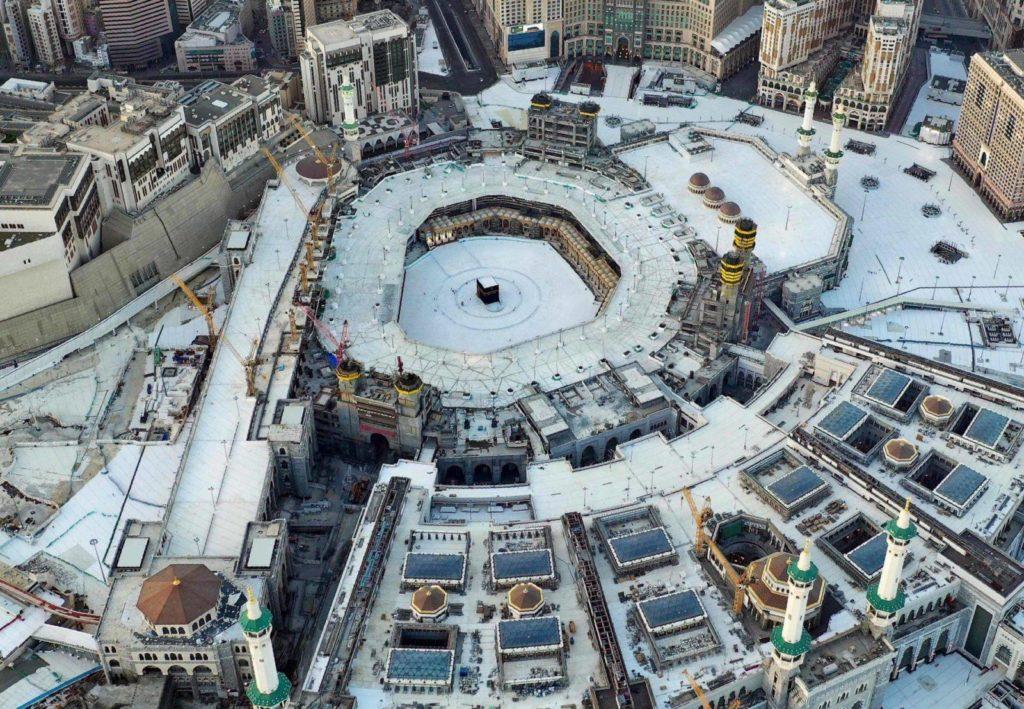
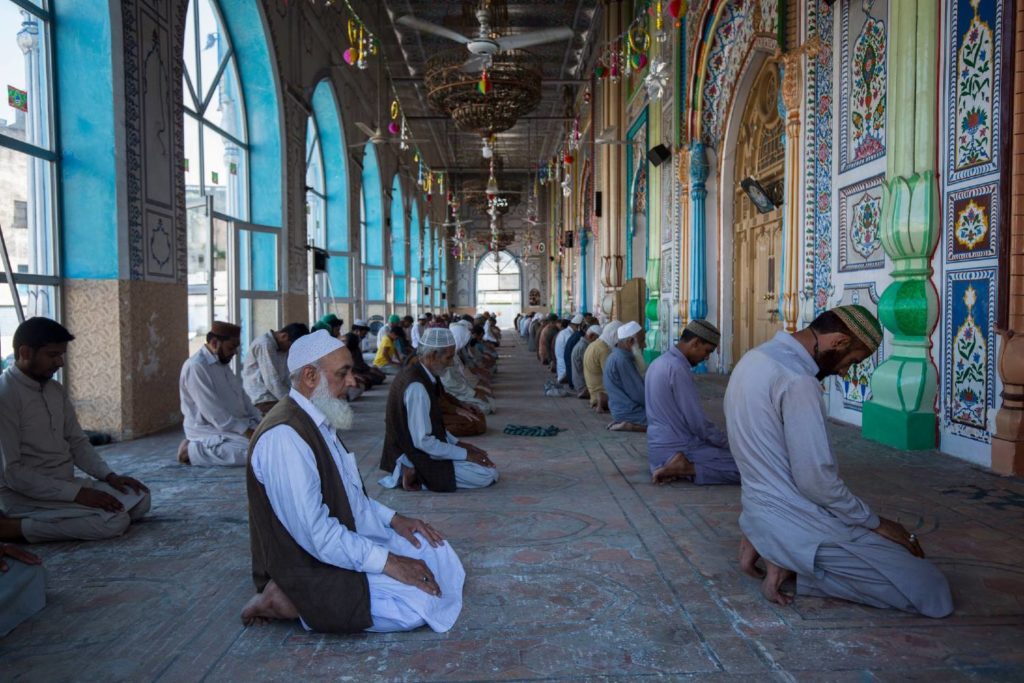
Pakistan 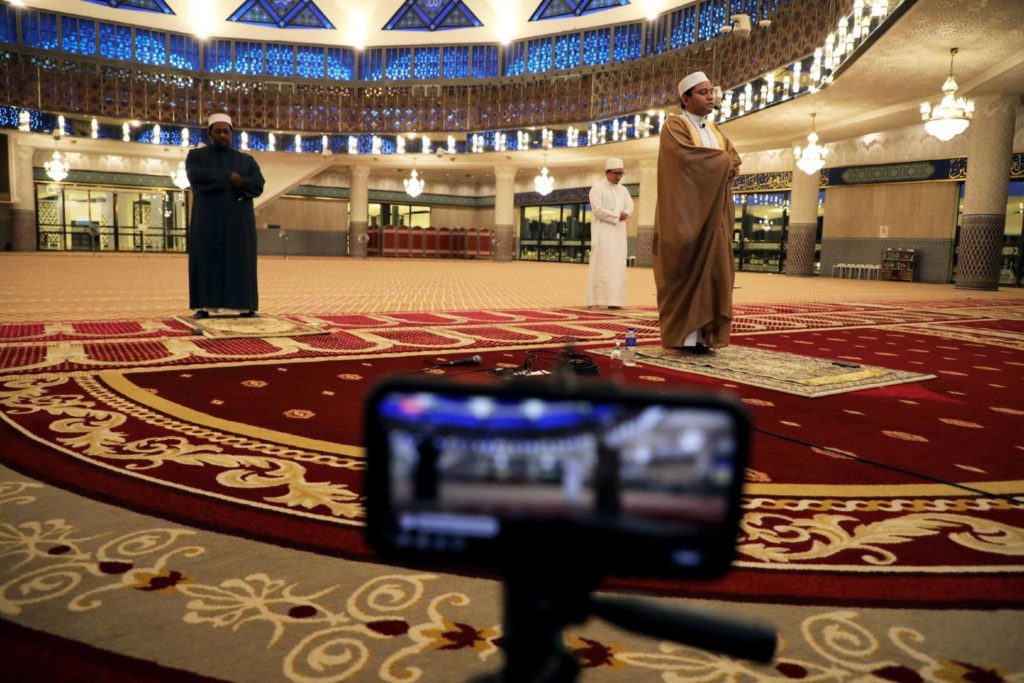
Malaysia 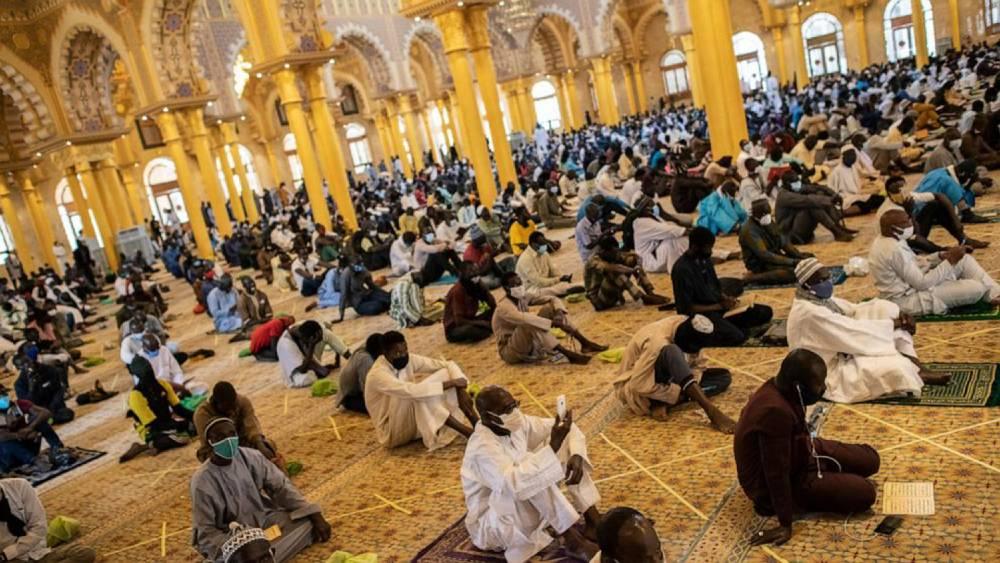
Senegal 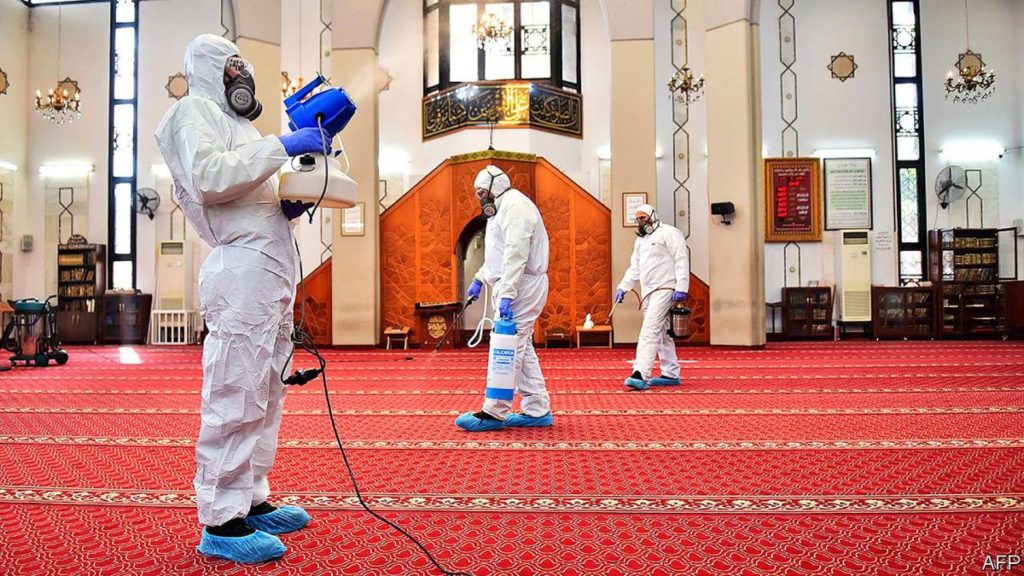
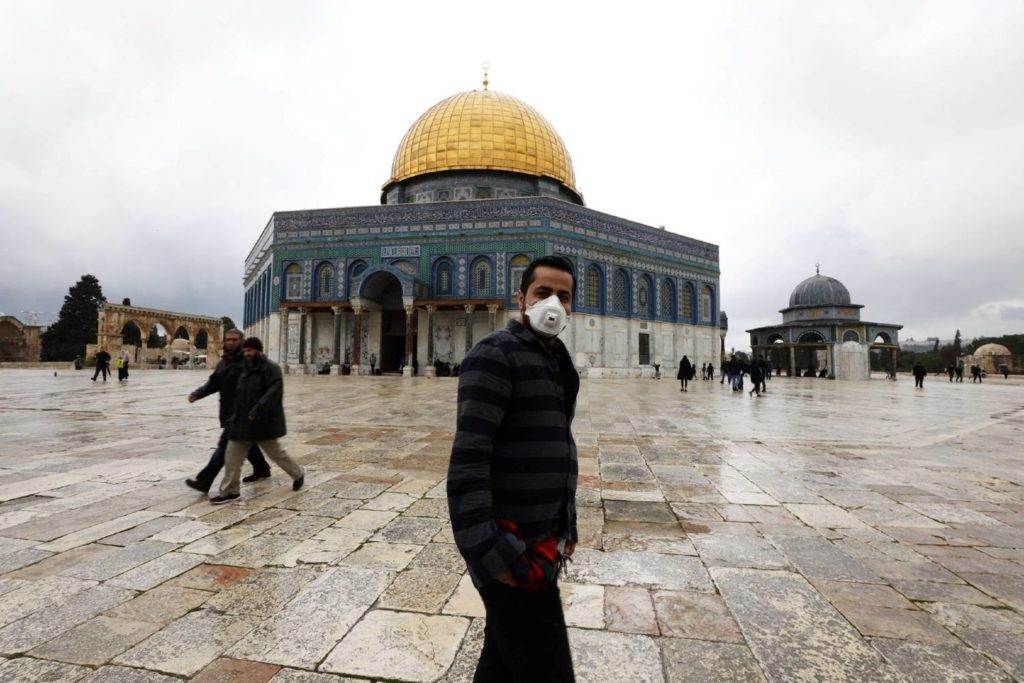
Dome of the Rock, Masjid al-Aqsa
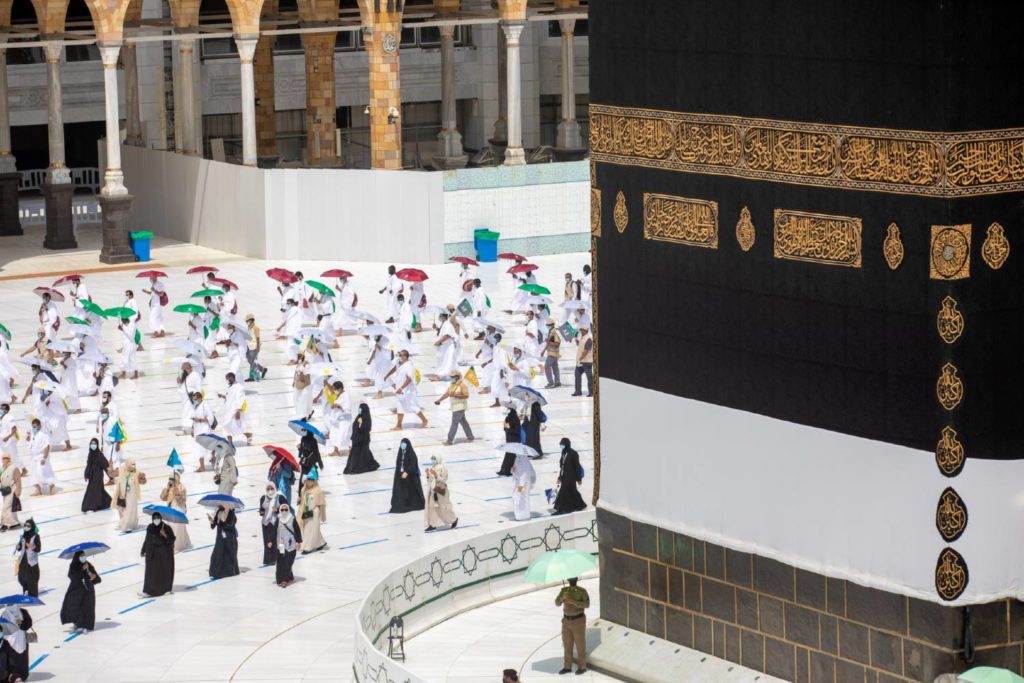
Our Hajj in the pandemic
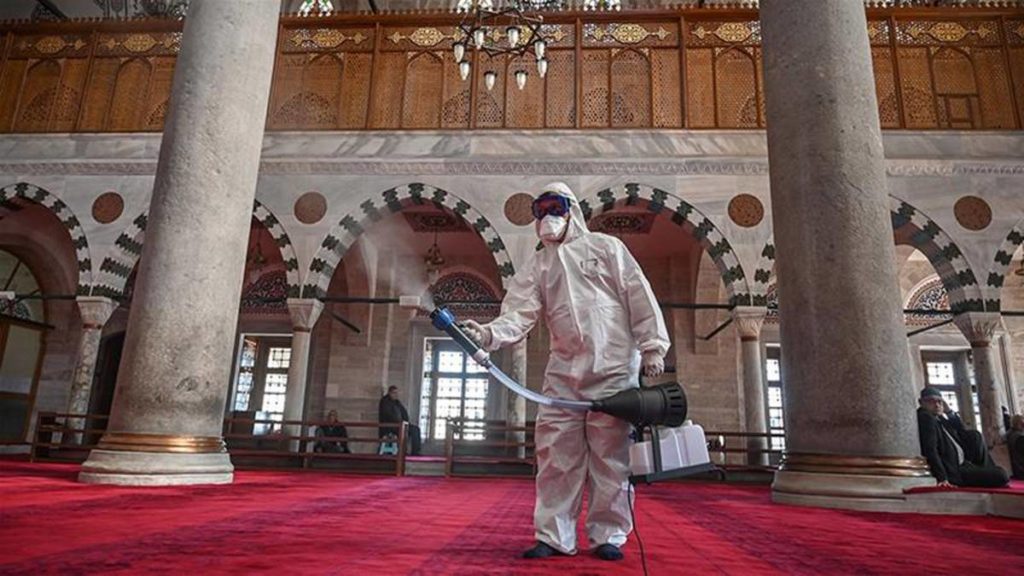
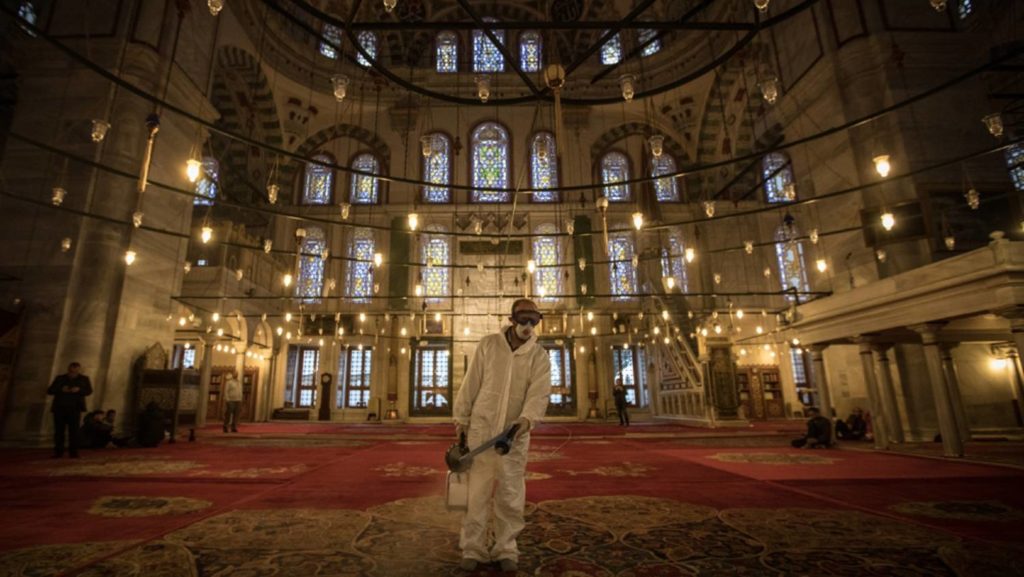
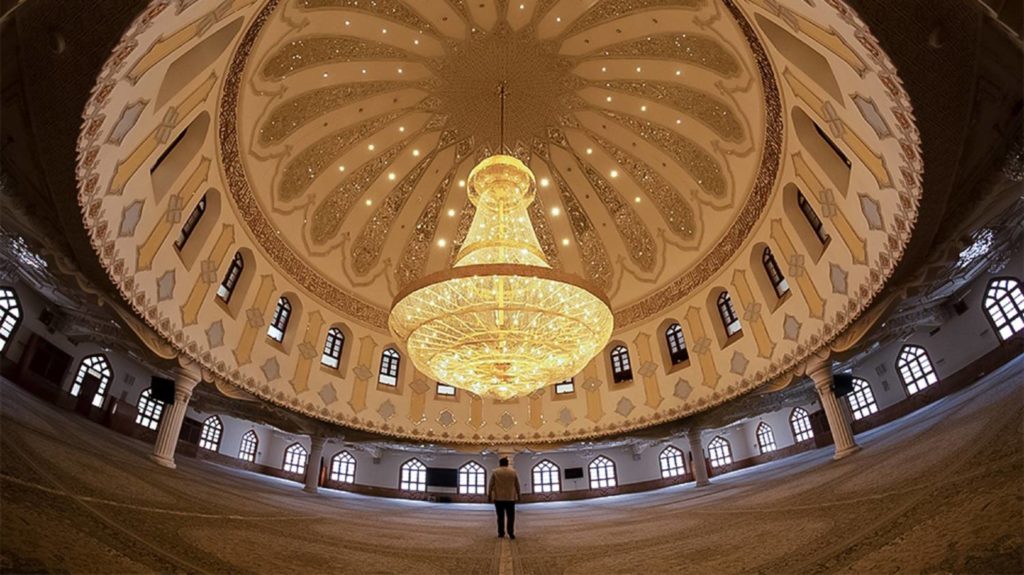
Grand Mosque of Basra, Iraq 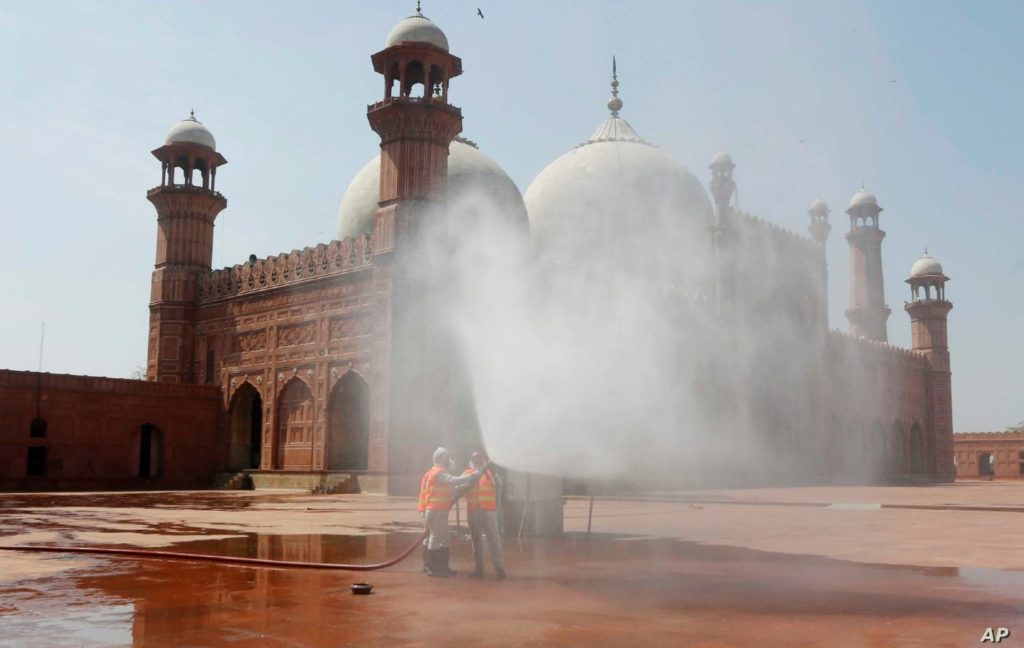
Badshahi Masjid, Lahore, Pakistan
THE iconic image of the man whose dream came true and he performed tawaf alone. When 20 years ago, he asked a shaikh about a dream he saw, he was told he would perform tawaf alone around the Ka’bah. He disregarded the dream thinking how would the Haram ever be emptied for him to do tawaf alone. Subhan Allah, 20 years later, the dream came true in 2020 as the Haram was closed due to the coronavirus (COVID19). This incident was confirmed by a number of reliable sources. The dream interpreter was Shaikh Muhammad al-Rumi.
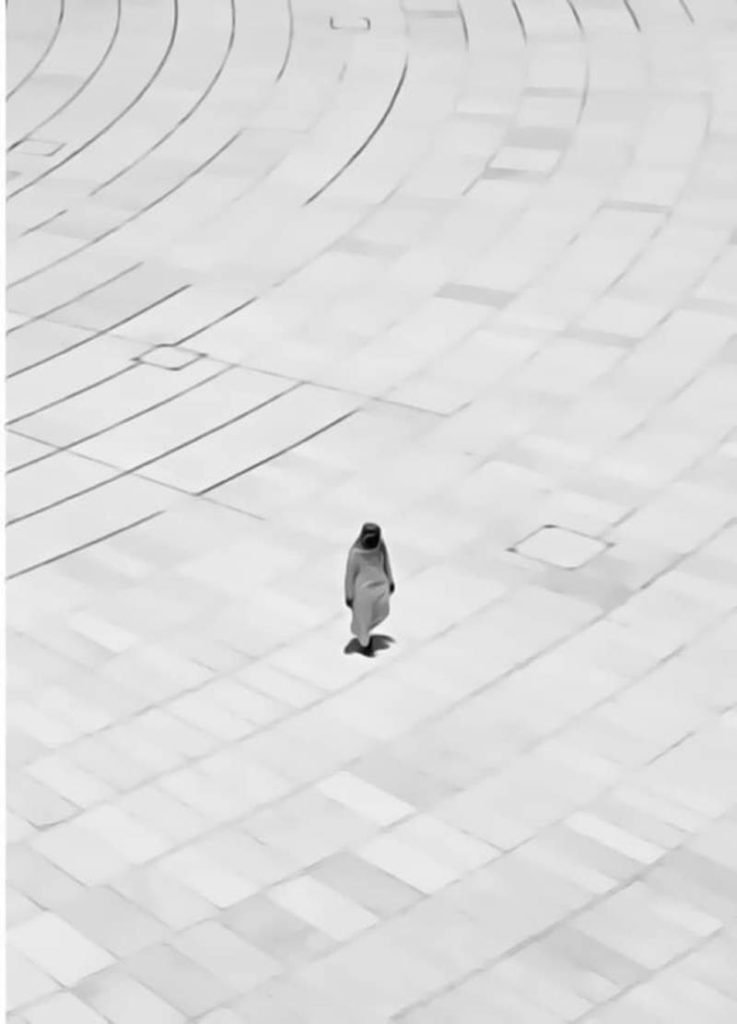
This is a free issue of our magazine. Please subscribe to read future issues.
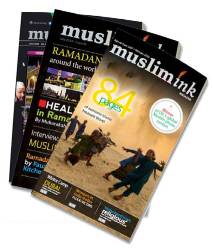
Learn more about our work in the Subscribe page.



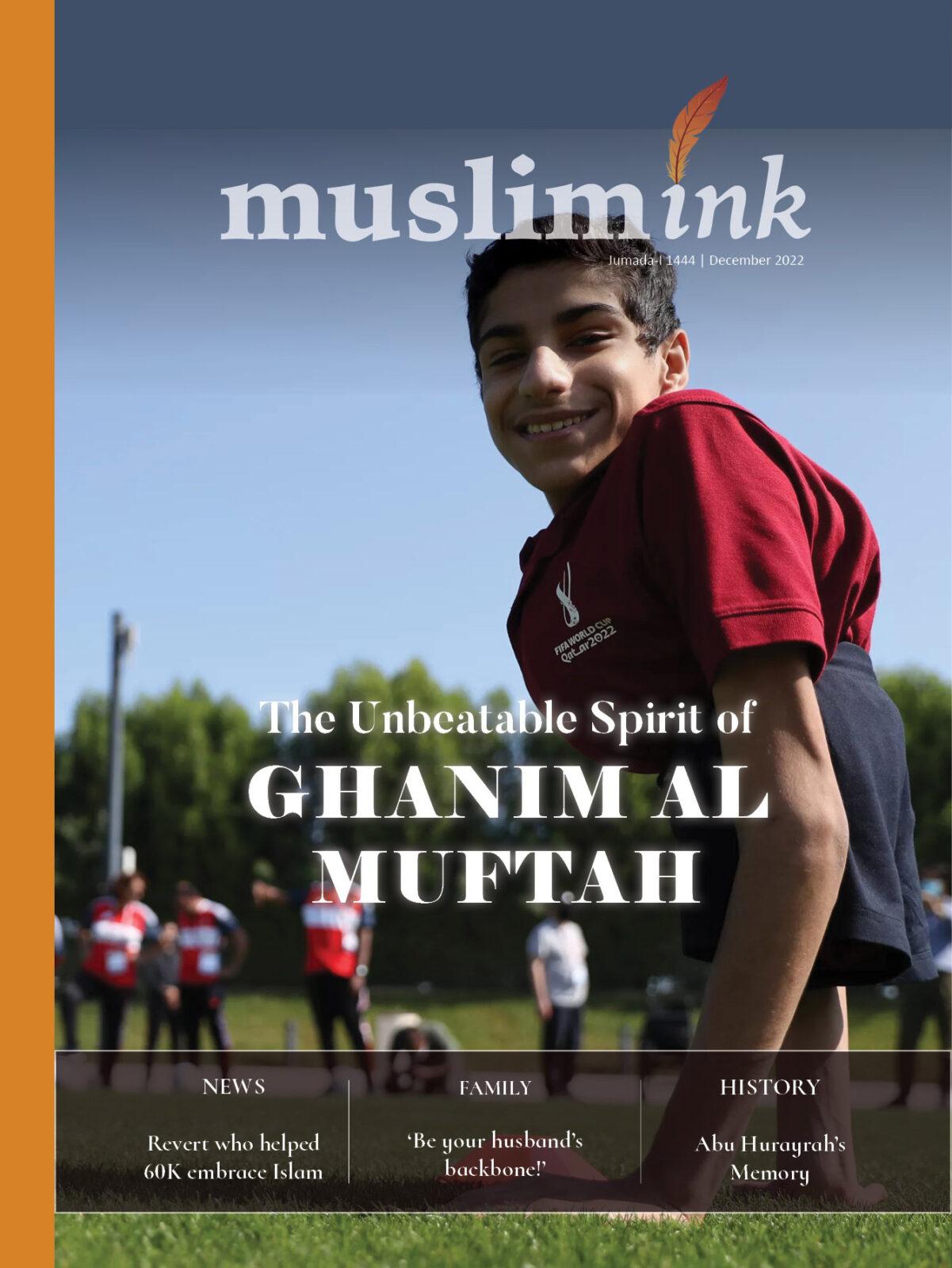
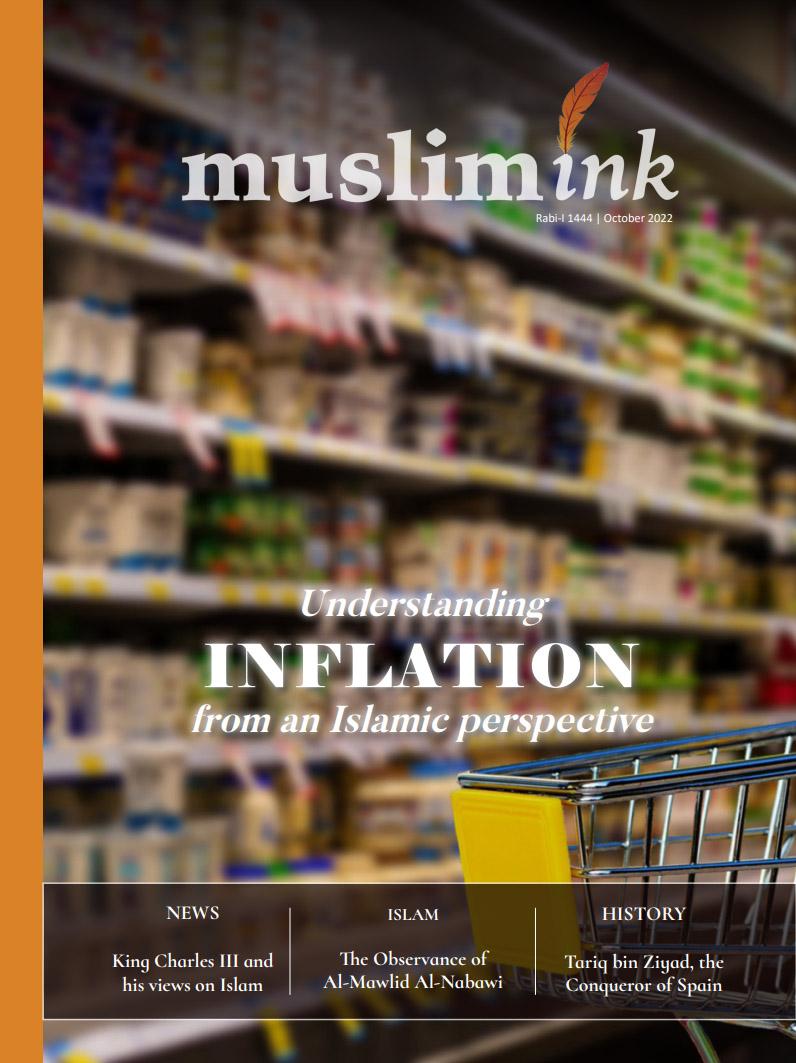
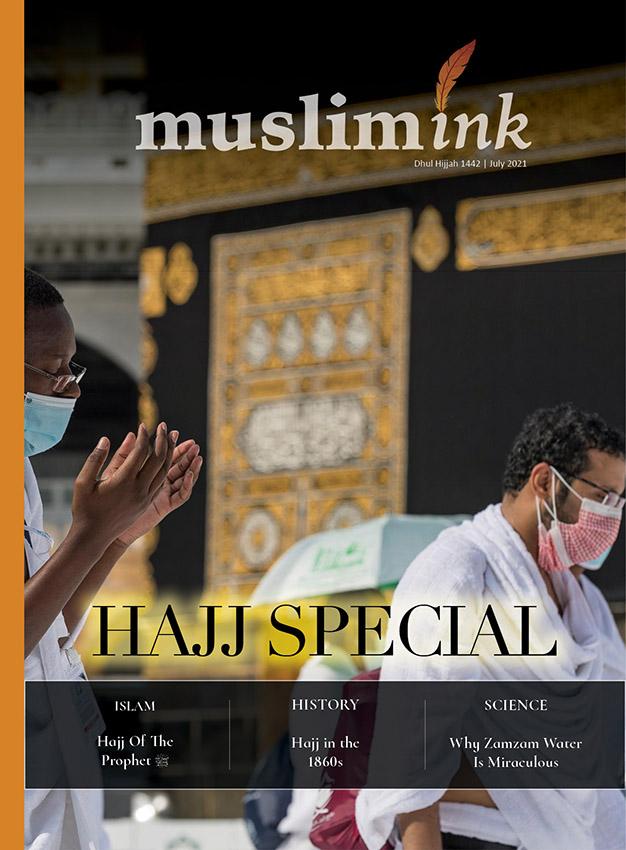
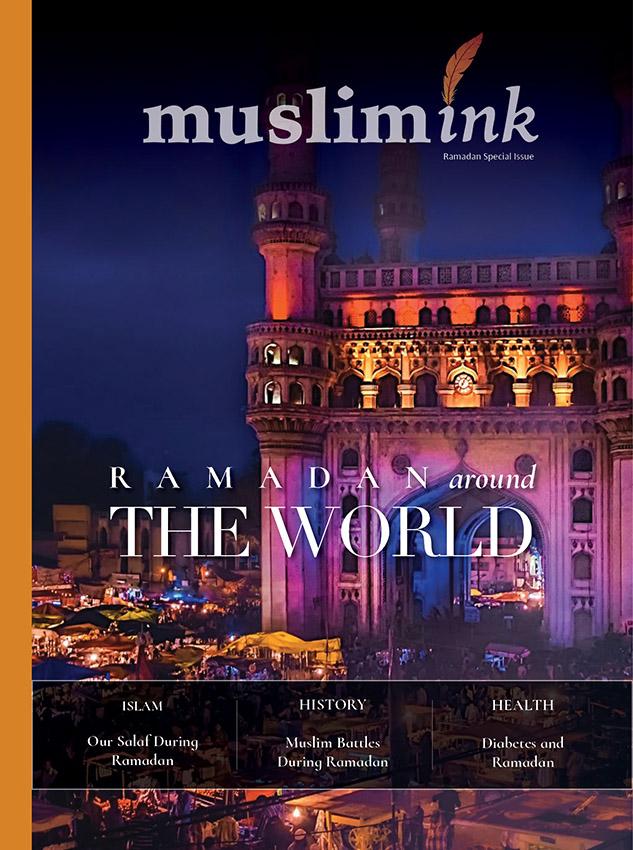
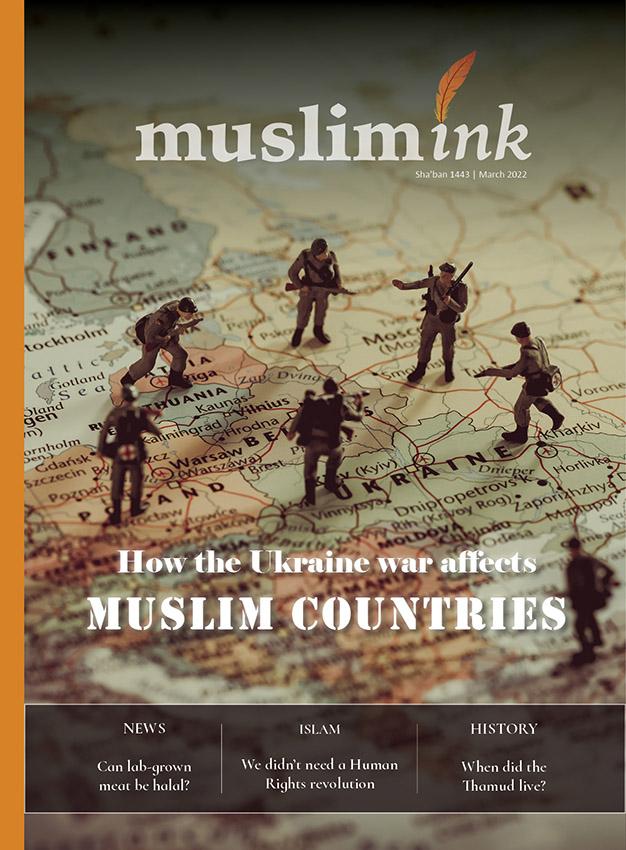

 Dr. Bilal Philips
Dr. Bilal Philips